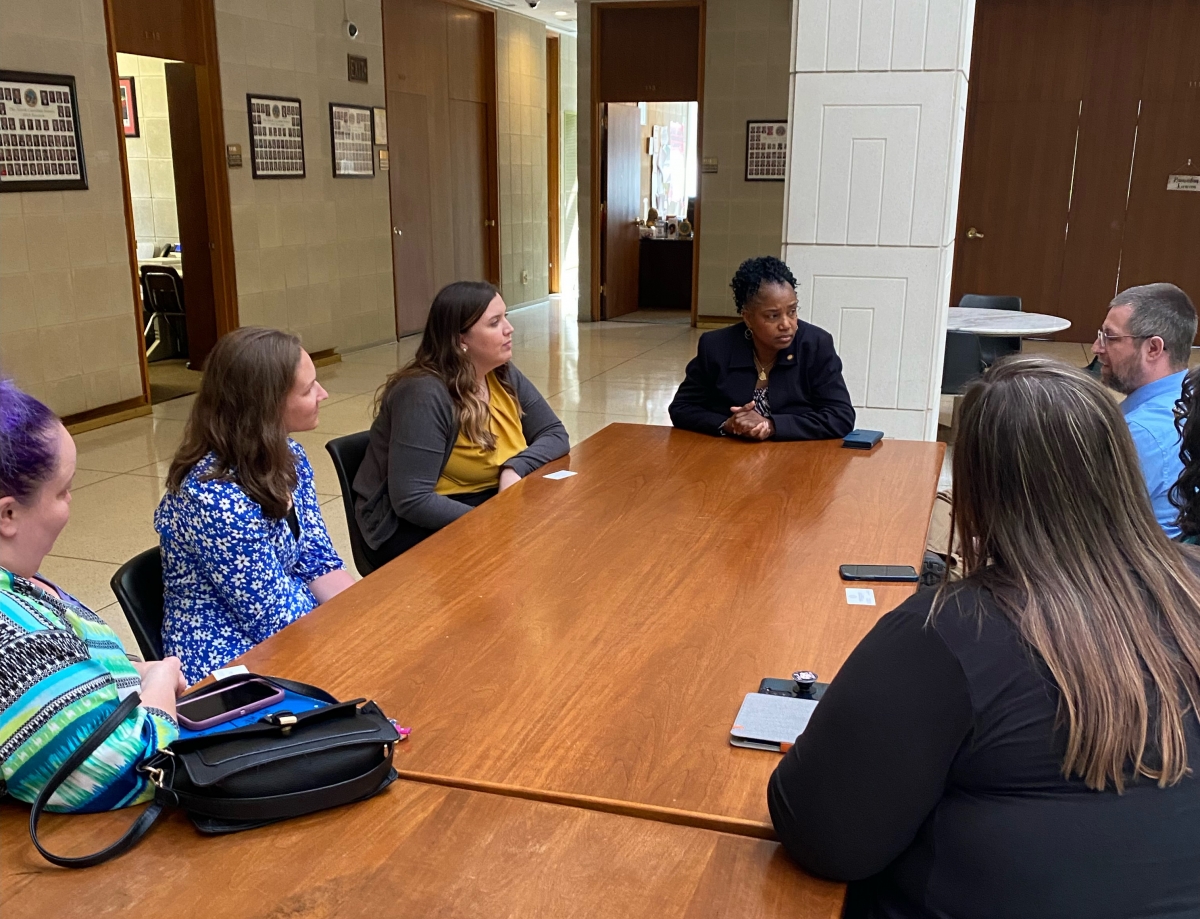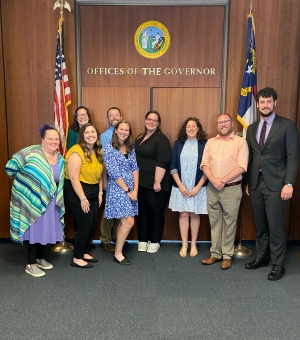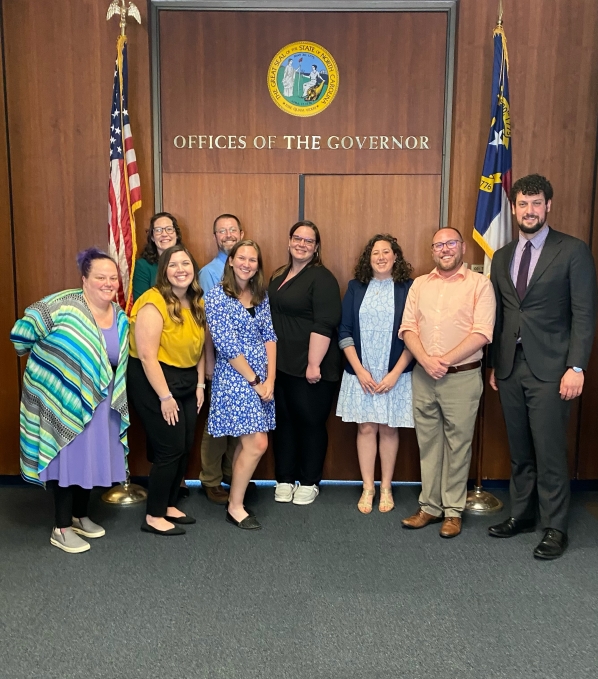Field trips to the capitol are not just for the K-12 students. As part of Dr. Jason Lynch’s HE 6340 Policy Analysis in Higher Education course this spring, students enrolled in the doctoral program with a concentration in higher education had the opportunity to visit the North Carolina state capitol, where they met with Senator Kandie Smith, Representative Deb Butler, Representative Lindsay Prather, and members of Governor Roy Cooper's higher ed policy staff.
"I've often found that most people view policy making as something that happens 'to' them and view policymakers as beyond their reach,” said Lynch, an assistant professor in the Department of Leadership and Educational Studies.
“Yet, perhaps now more than ever, it is critical that those working in higher education, beyond senior administrators, are connected to policymakers and are empowered to voice their experiences," he added.
For Ian Wolf, the trip demonstrated an “authentic application of the course content.”
“I got a better understanding of ‘how the sausage is made’ relating to policy development,” said Wolf, who is an instructor at Vance-Granville Community College. “Our time at the North Carolina capitol helped illuminate just how messy a process that is.”
He also added, “Utilizing that understanding to effect change is another.”

Both Rose Webster and Maggie Douglas noted the importance of contacting not only their representatives in their respective districts, but also the representatives and committee members who are working on specific bills.
“I appreciate that Dr. Lynch gave us the opportunity to meet with representatives,” noted Douglas, who is the assistant registrar for class scheduling at Duke University. “I definitely feel more comfortable advocating for higher education issues now.”
Webster, who is the department head of academic advising at Alamance Community College, was impressed to learn that the state legislators complete a similar analysis process. “I will be able to use that same process to analyze various policy alternatives at my institution in order to make the best decision possible.”
Lee Roddick-Brown, a student services specialist for distance learning at Western Carolina University, witnessed “politicians who care deeply about what their constituents think and want you to reach out to have your voice heard.”
Looking at the bigger picture, Roddick-Brown said the field trip helped him “realize who might be open to listening to my ideas and all the research I have done on the things I care about in higher education.”
“It also means that the research I do in my work and classes could be used to make change beyond my own institution,” he added.

